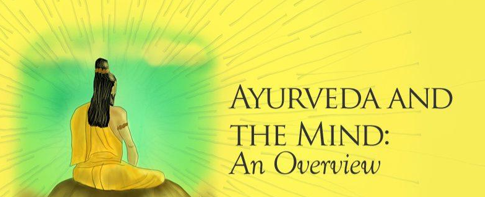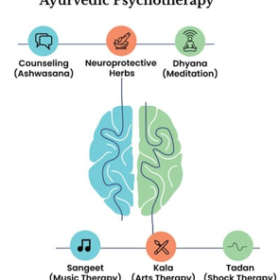Ayurveda
Ayurveda and the Mind-Body Connection
Ayurveda and the Mind-Body Connection
Ayurveda is an ancient Indian system of medicine that is based on the belief that the mind and body are interconnected. According to Ayurvedic principles, our physical health is influenced by our mental and emotional well-being, and vice versa. In this blog post, we will explore the mind-body connection in Ayurveda and how it can benefit our modern-day lives.
The Mind-Body Connection in Ayurveda
Ayurveda views the mind and body as two parts of a whole, rather than as separate entities. It is believed that the mind and body interact with each other through a network of subtle channels, known as nadis. These channels carry energy, or prana, throughout the body and connect the mind to the body.
Ayurveda also recognizes the importance of emotions in our overall health. Emotions such as stress, anxiety, and anger can have a negative impact on our physical health, while positive emotions such as love, joy, and gratitude can improve our well-being. According to Ayurvedic principles, our emotions are linked to our doshas, or energies. For example, the Pitta dosha is associated with anger and the Kapha dosha is associated with attachment.
Ayurvedic Techniques for Balancing the Mind and Body
Ayurveda offers a variety of techniques for balancing the mind and body. These techniques are designed to promote relaxation, reduce stress, and improve overall well-being. Some of the most common techniques include:
- Meditation: Ayurveda places a strong emphasis on meditation as a way to calm the mind and promote relaxation. Meditation can be done in a variety of ways, such as sitting in silence, focusing on the breath, or repeating a mantra.
- Yoga: Yoga is another important part of Ayurvedic practice. It involves a series of physical postures, known as asanas, that promote strength, flexibility, and balance. Yoga is also a great way to reduce stress and improve mental clarity.
- Ayurvedic Massage: Ayurvedic massage, or Abhyanga, is a technique that involves the use of warm herbal oils to massage the body. This technique is believed to promote relaxation, improve circulation, and balance the doshas.
- Diet: Ayurveda places a strong emphasis on diet as a way to balance the doshas and promote overall health. Each dosha has specific dietary guidelines, and Ayurvedic practitioners often recommend foods and spices that are beneficial for each dosha.
- Ayurvedic Herbs: Ayurveda also uses a variety of herbs and spices to balance the doshas and promote overall well-being. Some of the most commonly used herbs include ashwagandha, triphala, and turmeric.
The Benefits of Ayurveda for the Mind and Body
Ayurveda offers a variety of benefits for both the mind and body. Some of the most notable benefits include:
- Improved Digestion: Ayurveda recognizes the importance of digestion in overall health. By following a dosha-specific diet and incorporating Ayurvedic herbs and spices, digestion can be improved, leading to better overall health.
- Reduced Stress: Ayurvedic techniques such as meditation, yoga, and massage can help reduce stress and promote relaxation. This can lead to improved mental and emotional well-being.
- Improved Sleep: Ayurveda recognizes the importance of sleep in overall health. By following Ayurvedic principles, such as eating a light dinner and practicing relaxation techniques before bed, sleep can be improved.
- Increased Energy: By balancing the doshas through Ayurvedic techniques, energy levels can be increased, leading to improved overall well-being.
- Reduced Inflammation: Ayurvedic herbs and spices are known for their anti-inflammatory





